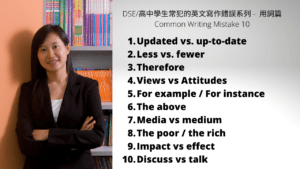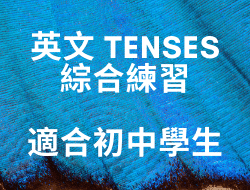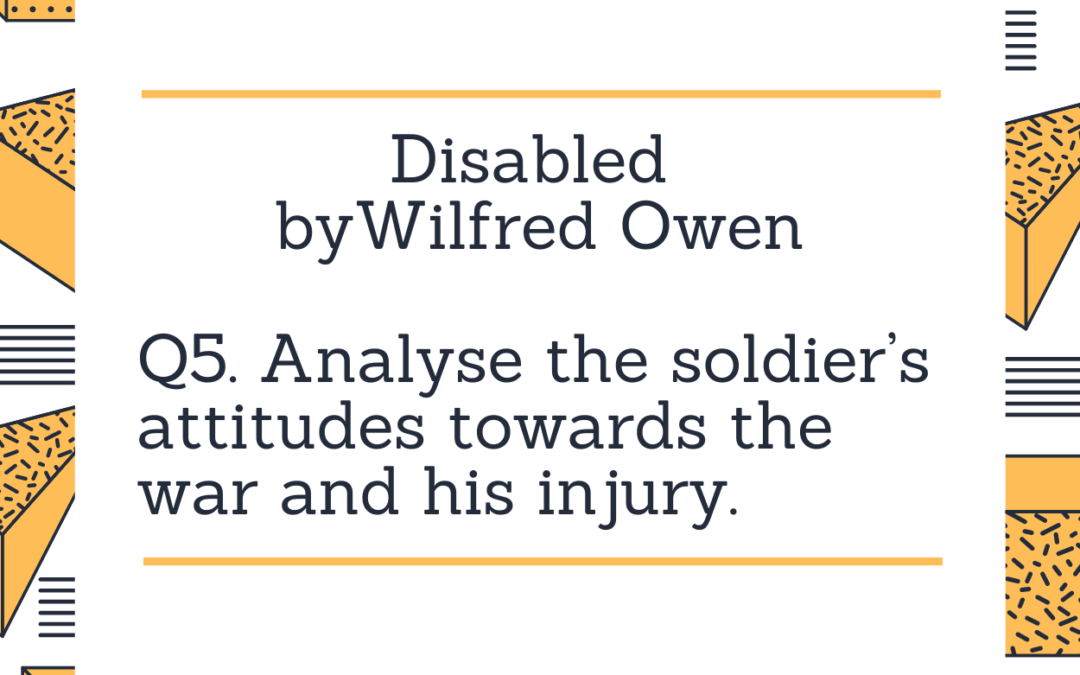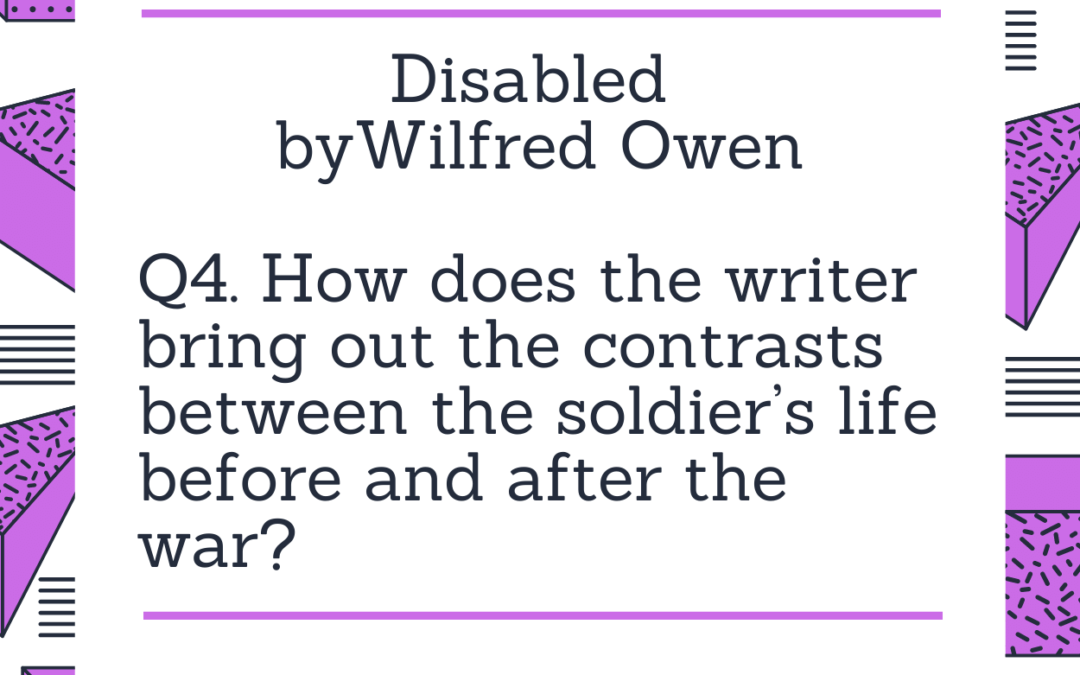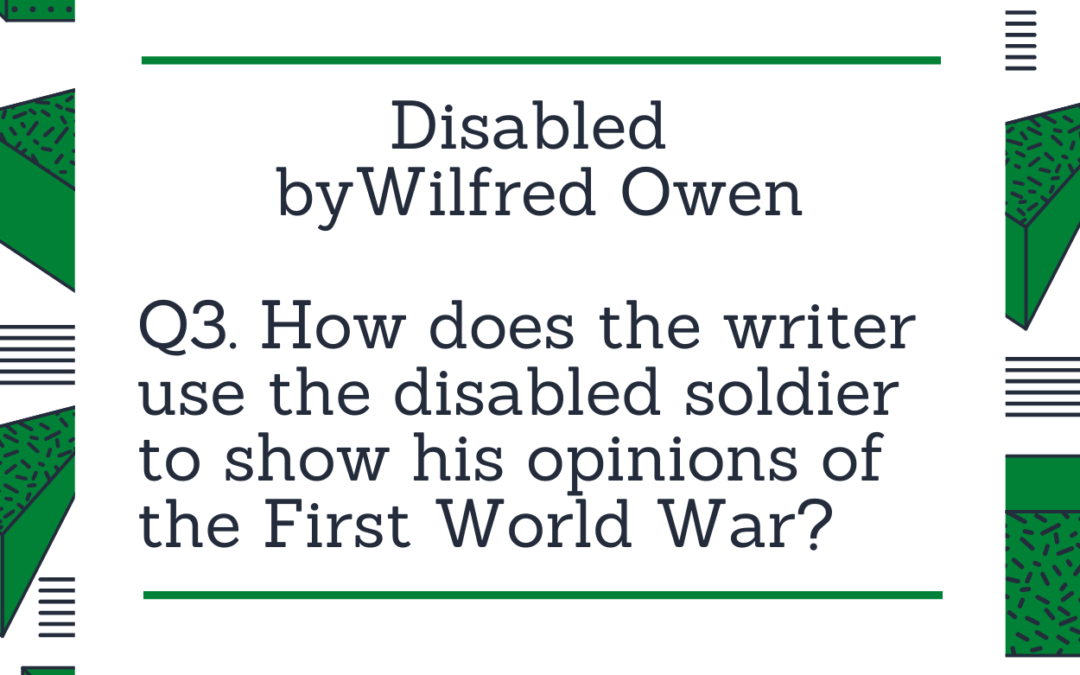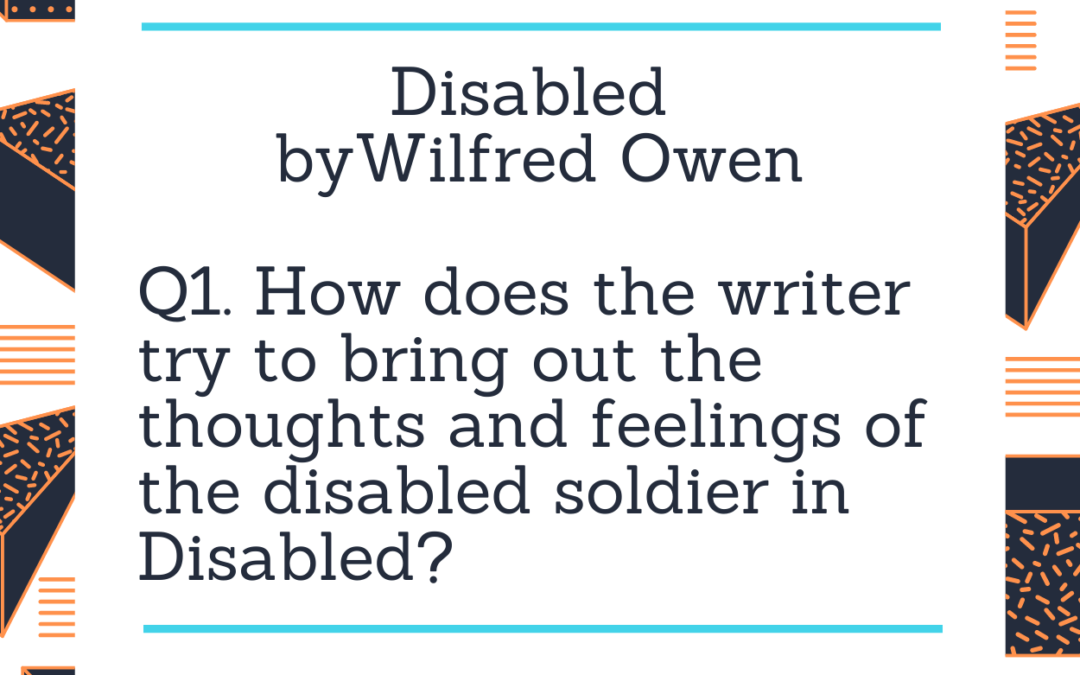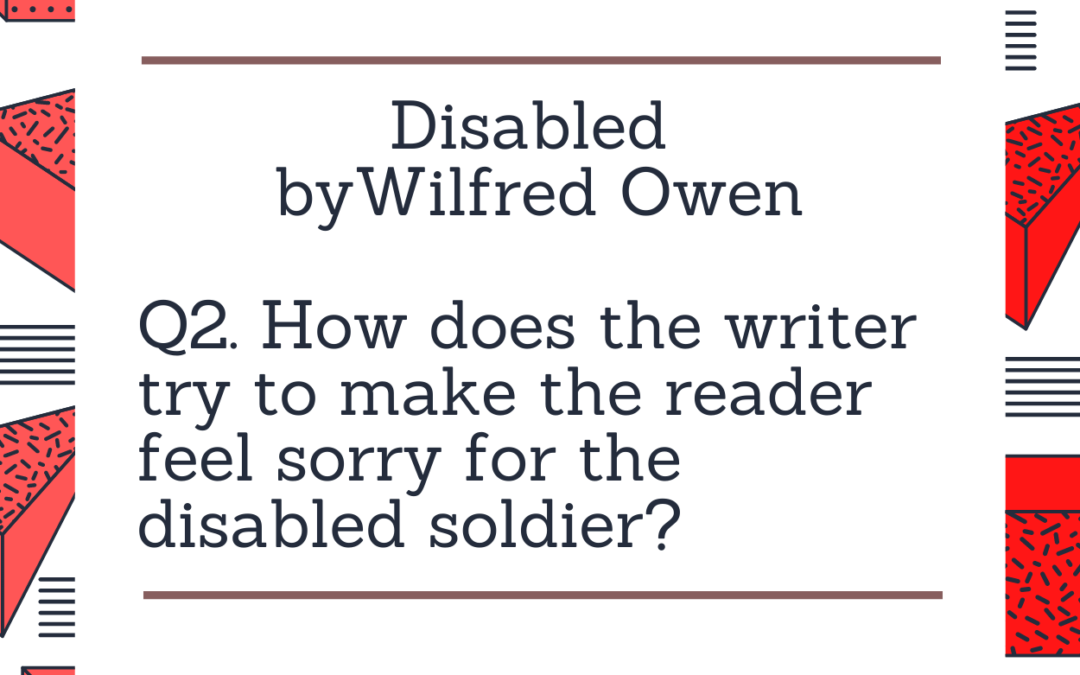
IGCSE Disabled by Wilfred Owen Model Essays Question 02
Edexcel English IGCSE: Disabled by Wilfred Owen
Q2. How does the writer try to make the reader feel sorry for the disabled soldier?
In your answer, consider:
- the soldier’s life now compared to his past;
- his experience of the war;
- the use of language.
You should refer closely to the text to support your answer. You may use brief quotations.
Edexcel English IGCSE Model Essay by an Expert
The soldier in ‘Disabled’ evokes the reader’s pity because of the tragic contrasts between his life before and after the war. These contrasts were caused by a devastating injury during the war.
The soldier’s life before the war is described as happy and carefree, which makes his current situation all the more poignant. With beautiful imagery, Owen describes how the town used to appear to the soldier: “glow-lamps budded in the light-blue trees”. These soft, pleasurable colours contrast the “ghastly suit of grey” which he now wears; the alliteration in this description highlights his disgust. Owen also highlights the contrast in his appearance: just a year ago, he looked “younger than his youth”, but “now, he is old”. The repetition in the former phrase creates a sense of enthusiasm, which contrasts with the tired finality of the latter. By highlighting the difference in the soldier’s quality of life, Owen prompts the reader to pity the soldier.
The soldier’s experience of war provokes further sympathy. There is cruel irony in the fact that he was really too young to to join the army. The officials were “smiling” when they accepted him, which angers the reader, as they clearly didn’t care about the soldiers. There is also a graphic description of the soldier’s injury. The description “leap of purple spurted from his thigh” creates a vivid image of the injury, and encourages the reader to imagine the pain experienced by the soldier. Owen also shows that the injury drastically shortened the soldier’s life: “half his lifetime lapsed”. The alliteration in this phrase causes the reader to linger and reflect on the idea that the soldier’s life was wasting away. Through these images of pain and wasting youth, Owen encourages the reader to sympathise with the soldier.
The way that the soldier is treated makes the reader pity the soldier and also angry on his behalf. During the narration of the poem, the soldier is sitting outside in the cold. He wants to come inside, but is ignored, leading him to ask the repeated plaintive question, “Why don’t they come?”. This highlights his lack of independence, since he has to wait for assistance just to go indoors. However, it also reflects his loneliness and helplessness on a larger scale; since his injury, there has been no mention of the friends with whom he used to socialise, suggesting that he has been abandoned by all of society. This is shameful, considering that he sacrificed his health and youth out of a sense of duty to his country.
The soldier’s life and future has been changed for the worse, through a traumatic experience which he should never have endured. This tragic set of circumstances cause sympathy in the reader.
